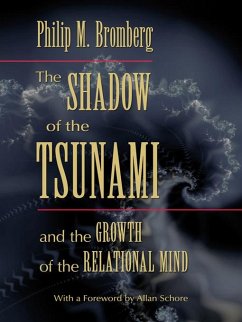
Culture, Politics and Race in the Making of Interpersonal Psychoanalysis (eBook, ePUB)
Breaking Boundaries
Redaktion: Frie, Roger; Sauvayre, Pascal
Versandkostenfrei!
Sofort per Download lieferbar
32,95 €
inkl. MwSt.
Weitere Ausgaben:

PAYBACK Punkte
16 °P sammeln!
Winner of the 2023 American Board & Academy of Psychoanalysis Book Prize!Culture, Politics and Race in the Making of Interpersonal Psychoanalysis traces the emergence of Interpersonal Psychoanalysis and demonstrates how the radical, cross-disciplinary dialogues that form its foundation are relevant to present-day social and cultural challenges.Psychoanalysts today are grappling with how to address a host of societal and political crises. In the 1930s, a similar set of crises led a group of progressive practitioners and scholars to engage in a radical, cross-disciplinary dialogue that became th...
Winner of the 2023 American Board & Academy of Psychoanalysis Book Prize!
Culture, Politics and Race in the Making of Interpersonal Psychoanalysis traces the emergence of Interpersonal Psychoanalysis and demonstrates how the radical, cross-disciplinary dialogues that form its foundation are relevant to present-day social and cultural challenges.
Psychoanalysts today are grappling with how to address a host of societal and political crises. In the 1930s, a similar set of crises led a group of progressive practitioners and scholars to engage in a radical, cross-disciplinary dialogue that became the foundation for Interpersonal Psychoanalysis. Pioneering psychoanalysts created a form of thought and practice that viewed human suffering through the wider lens of society and culture and provided a means to address the pervasive issues of racism, sexuality and politics in human experience. With contributions from leading psychoanalysts and scholars, and by making use of original sources, this book evidences the significance of this approach to understanding marginalisation today.
Written in an open and accessible fashion, Culture, Politics and Race in the Making of Interpersonal Psychoanalysis demonstrates the importance of the early interpersonal-cultural school for the present moment. The book will appeal to a broad audience in psychoanalysis and psychotherapy, the history of medicine, and social and cultural theory.
Culture, Politics and Race in the Making of Interpersonal Psychoanalysis traces the emergence of Interpersonal Psychoanalysis and demonstrates how the radical, cross-disciplinary dialogues that form its foundation are relevant to present-day social and cultural challenges.
Psychoanalysts today are grappling with how to address a host of societal and political crises. In the 1930s, a similar set of crises led a group of progressive practitioners and scholars to engage in a radical, cross-disciplinary dialogue that became the foundation for Interpersonal Psychoanalysis. Pioneering psychoanalysts created a form of thought and practice that viewed human suffering through the wider lens of society and culture and provided a means to address the pervasive issues of racism, sexuality and politics in human experience. With contributions from leading psychoanalysts and scholars, and by making use of original sources, this book evidences the significance of this approach to understanding marginalisation today.
Written in an open and accessible fashion, Culture, Politics and Race in the Making of Interpersonal Psychoanalysis demonstrates the importance of the early interpersonal-cultural school for the present moment. The book will appeal to a broad audience in psychoanalysis and psychotherapy, the history of medicine, and social and cultural theory.
Dieser Download kann aus rechtlichen Gründen nur mit Rechnungsadresse in A, B, BG, CY, CZ, D, DK, EW, E, FIN, F, GR, HR, H, IRL, I, LT, L, LR, M, NL, PL, P, R, S, SLO, SK ausgeliefert werden.













